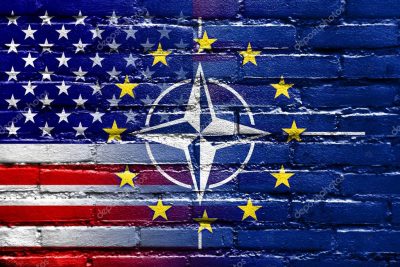Towards a US-EU “Strategic Bloc”: “An Integrated Western Defense Partnership” Outside the Realm of US-NATO. Is There An Unspoken Agenda?

All Global Research articles can be read in 51 languages by activating the “Translate Website” drop down menu on the top banner of our home page (Desktop version).
To receive Global Research’s Daily Newsletter (selected articles), click here.
Visit and follow us on Instagram, Twitter and Facebook. Feel free to repost and share widely Global Research articles.
***
According to a report by Defense News a US-EU initiative is envisaged with a view to integrating strategic and military decision making. What is being negotiated is “a key document on their defense relationship, a so-called administrative arrangement between the U.S. Defense Department and the European Defence Agency”.
This initiative first discussed in December 2021 is slated to be negotiated outside the realm of the North Atlantic Treaty Organization (NATO).
Defense News describes the US and the EU as “two global players”, pointing to the coordination of their respective defense endeavors in a broader framework (which could include related economic affairs including sanctions).
This Partnership would also require the endorsement of all EU member nation states including those which are not members of NATO (Austria, Cyprus, Finland, Ireland, Malta, and Sweden). How would national sovereignty be affected?
Of significance it would also exclude NATO member states which are not members of the EU. Specifically this pertains to Turkey, a heavyweight within NATO which has a bilateral military cooperation agreement with Russia. This contradictory relationship (cross-cuttng alliance) is an obvious source of division and conflict within NATO.
(The non-EU countries members of NATO include Albania, Canada, Iceland, Montenegro, North Macedonia, Norway, Turkey, the U.K and the U.S.).
At this juncture, the US Department of Defense is not leading this initiative. On the U.S. side it’s Secretary of State Antony Blinken and his EU counterpart Josep Borrell, EU High Representative for Foreign Affairs and Security Policy.
Does this initiative point in the direction of a broader process of Western “political integration” between North America and the EU, Beyond the Realm of Military and Strategic Affairs?
How will the national sovereignty of the 27 member states of the European Union be affected? Are they slated to be inserted into a broader Trans-Atlantic (North America – EU) political and economic straitjacket.
Is this a hegemonic process of American “Colonization” and Demise of the “European Project”.
“The event is meant to open an additional trans-Atlantic channel on security matters and complement similar communications already happening via NATO, officials have said. Having such a forum specifically for the trade-minded European Union would energize the bloc’s defense ambitions and signal Washington’s link to the continent on yet another level, the thinking goes.” ( “First Ever Defense Talks Between US, EU Near Amid Ukraine War”, Defense News)
How will this new “Trans-Atlantic” relationship affect NATO? Is the North Atlantic Treaty (14 articles) signed in Washington D.C. on April 4, 1949 “Obsolete”?
What is also at stake is the issue of US-EU corporate integration of the military industrial complex.
The pact would allow routine interactions between American and EU institutions on defense issues and open the door for U.S. defense contractors to participate in the bloc’s growing defense spending under certain conditions. Defense News)
*
Note to readers: Please click the share buttons above or below. Follow us on Instagram, Twitter and Facebook. Feel free to repost and share widely Global Research articles.

